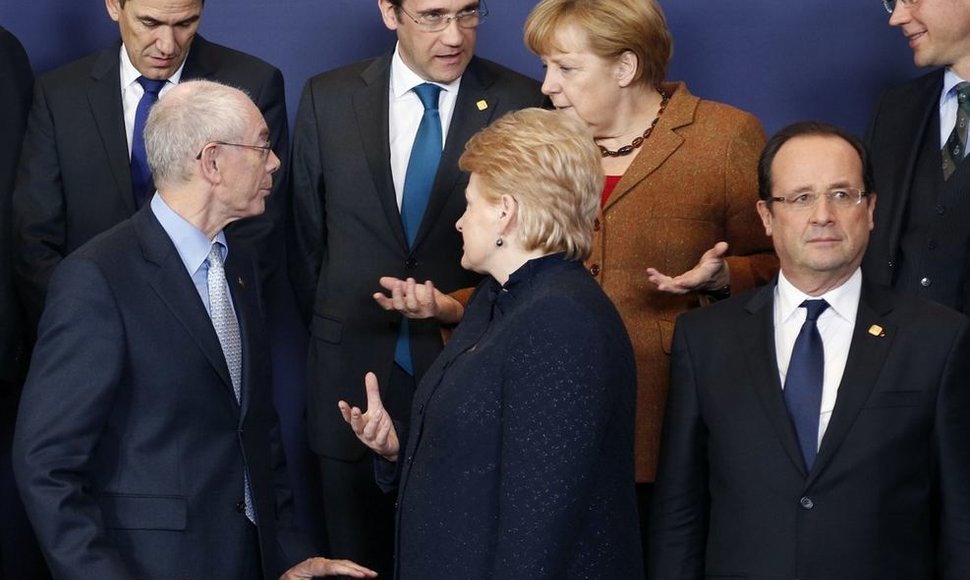Presented in early hours of Friday, the budget draft envisages 400 million euros for Ignalina closure between 2014 and 2020. However, Lithuanian officials say the sum is provided in terms of 2011 prices.
"The actual sum would be 460 million euros, as we are negotiating at the 2011 fixed prices, which are indeed untrue," a top-ranking official told BNS.
Last week's budget draft proposed 210 million euros for Ignalina decommissioning projects for the 2014-2017 period. Lithuania wanted to delete the timeframe to be able to continue receiving aid beyond the date.
In 2007-2013, EU provided 1.37 billion euros for the decommissioning. However, Lithuanian President Dalia Grybauskaitė said on Thursday that the country only managed to use “about 50-60 percent of the money.”
Baltic exception for structural aid
Diplomatic sources said the proposed draft still included the provisions, which would allow an exception for the Baltic states – limit the share of the structural aid linked to the gross domestic product (GDP).
According to information available to BNS, the current draft proposes that the countries whose economy contracted more than 1 percent in 2008-2010 see their EU aid ceiling increased to 2.6 percent of the GDP, compared to the general rule stating that EU support cannot exceed 2.35 percent of GDP.
Lithuania's economy went down by nearly 15 percent in 2009, therefore, the indicator would reduce the aid significantly, should it be included in the calculation of the ceiling.
Officials maintain progress has been achieved in the negotiations on direct payments to farmers – under the current draft, "a move was made close to 75 percent at the end of the period." No further details are known as to the new proposal to the direct agricultural payments.
These are not the final numbers. The draft is yet to be specified later on Friday, the second day of the negotiations between heads of states and governments in Brussels. The negotiations are scheduled to start at 1 PM after delegates of the 27 member-states review the new proposals made by EU President Herman Van Rompuy.
Lithuanian officials say the proposed figures are good, warning that “they do not exist until final agreement.”
Brussels media said the draft drew critical opinions from Britain and Germany over insufficient spending cuts, a move requested by a group of EU majors that contribute the lion's share to the common budget. Meanwhile, poorer countries fear drastic cuts, saying it would lead to considerable decrease in the aid they receive.
EUobserver.com said the new draft sets the 2014-2020 budget at 972 billion euros. As compared with the initial version, it stipulates a 10.6 billion euro rise in cohesion funds and 8 billion euros more to agriculture.
According to the portal, aid to the new EU programme Connecting Europe would be slashed by 5 billion euros. The cut may affect the aid to Lithuania, as well, as the country expects the instrument to finance Rail Baltica railway project and electricity and gas links with Poland.
Very good start
Lithuanian President Dalia Grybauskaitė, who is attending the Brussels talks on the new seven-year budget, says that the new proposed draft was "a very good start for negotiations," expressing certitude that an agreement would be reached by the end of this summit.
"I will be happy if we are be able to finish and agree. At least from my point of view, it's a very good start for negotiations, very good," Grybauskaitė told Brussels journalists on Friday morning.
Observers say it is still difficult to forecast whether an agreement will be reached. There are many questions about the position taken by Great Britain, its Prime Minister David Cameron has threatened to veto the budget, if sufficient cuts are not made.
Leaders of some European nations already said that, in case of a failure to agree this week, the negotiations could be continued in January or February.












